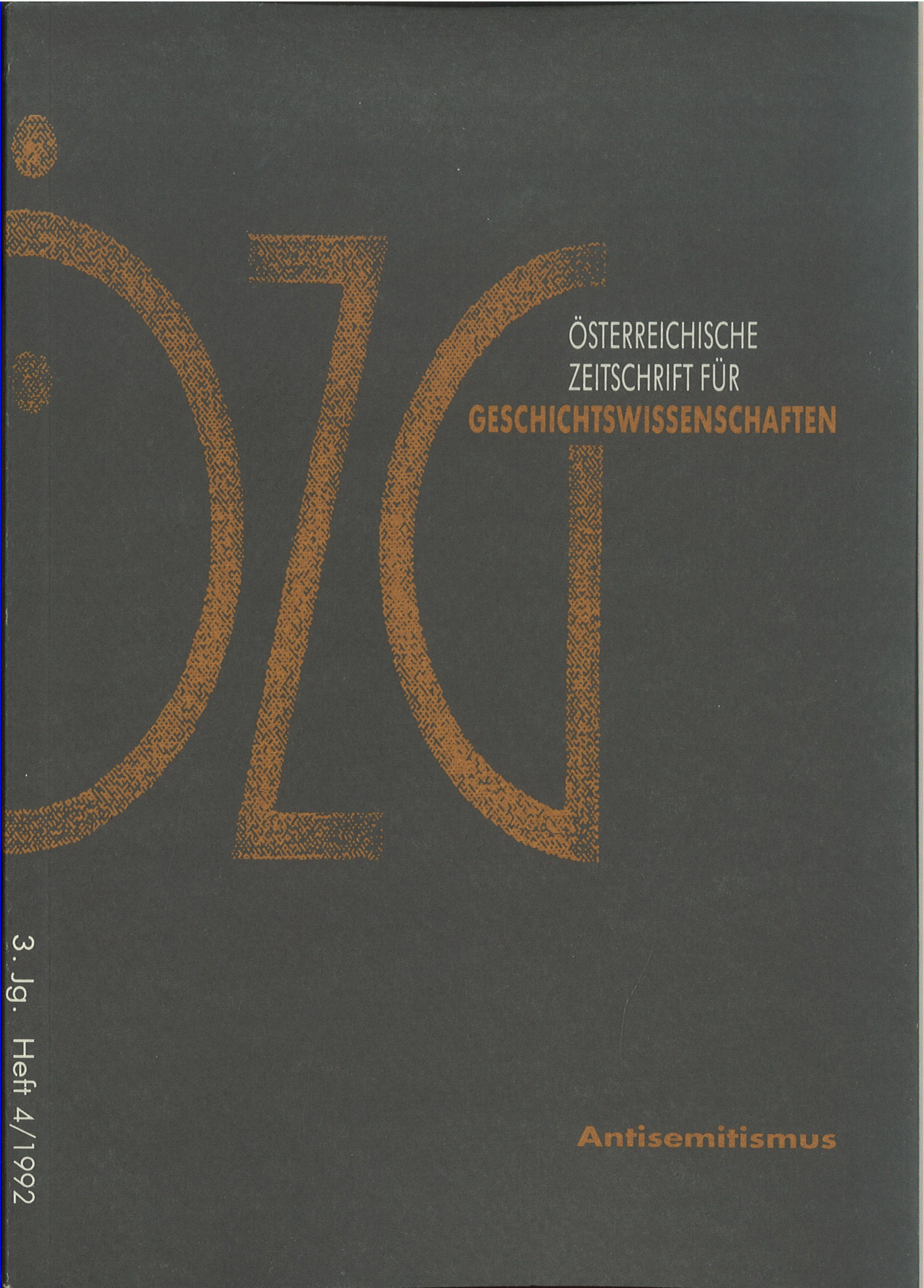Die deutsche Einheit und das Problem des Antisemitismus
DOI:
https://doi.org/10.25365/oezg-1992-3-4-5Abstract
The article deals with the German-Jewish discourse focussing on the decade before the unification of the two German states, and the period of unification itself. In spite of various German attempts at normalization and reconciliation and the endeavor to „step out of Hitler's shadow", the Nazi past is still present. But the presence of the past has antagonistic character insofar as the historical consciousness of the German political mainstream and of the Jewish survivors and their children drift apart. For most Germans the past of the Third Reich and the Holocaust has been substituted by another past: the decades of communist rule in East Germany. At the same time, the taboo on anti-Semitism which characterized the immediate postwar period, is fading away. Anti-Semitic sentiment and attitudes come to the fore in the political and cultural spheres whilst right-wing extremism perpetuates traditional racial anti-Semitism. The unification and the revival of German nationalism prove to be catalysts of renewed anti-Jewish attitudes.


